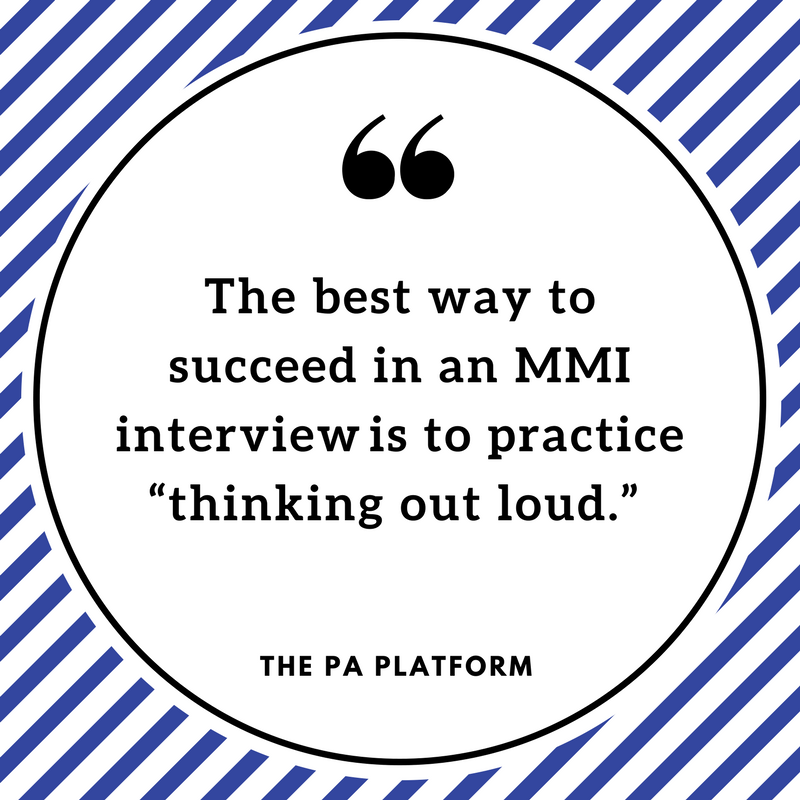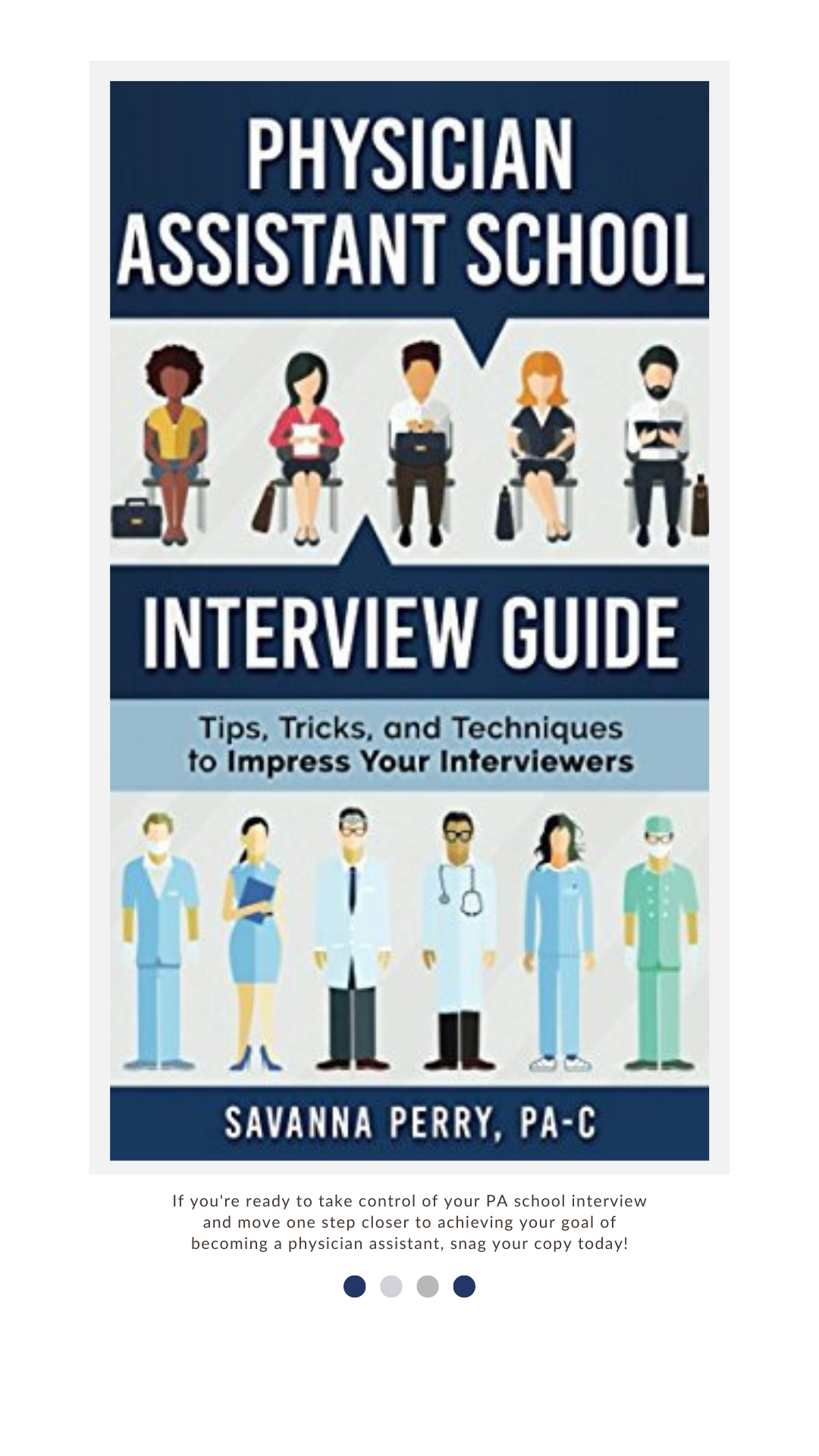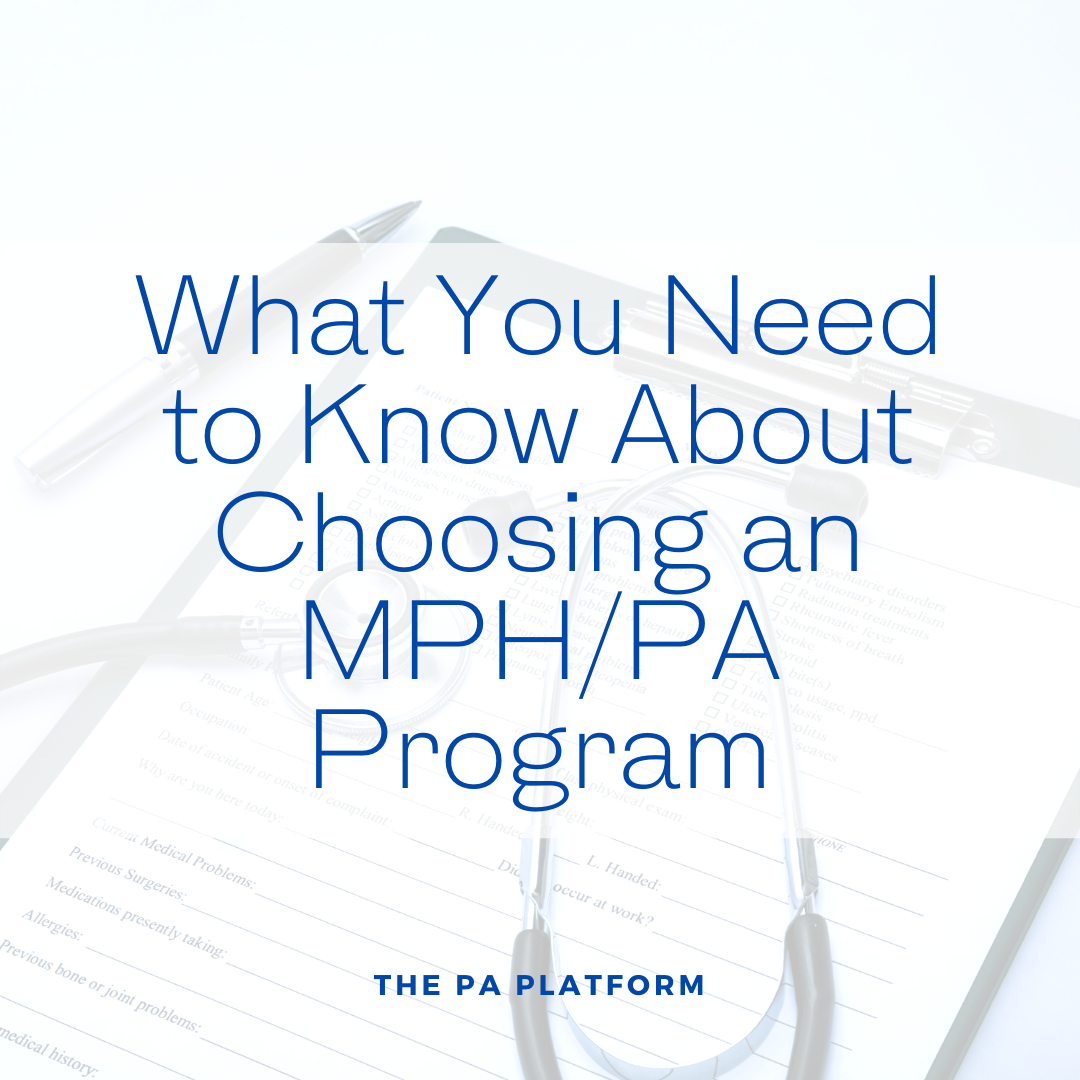MMI is my least favorite type of interviews. It’s difficult to prepare for because the questions tend to be completely random, and you usually don’t get an opportunity to directly address the reasons you want to become a PA. MMI elicits much more of a show, don’t tell impression, and the point is to find out more about your character.
The prompts can be anything from routine interview questions or completely random questions to ethical situations, critical thinking scenarios, or acting stations with standardized patients so you need to be ready for anything. The program is going to use scenarios that will assess different qualities, such as empathy, decision making, and communication skills. There are not necessarily right or wrong answers to these scenarios because the goal is to get a well-rounded look at you in a short period of time. The point is to evaluate the attributes and personal characteristics you would exhibit as a PA.
The best way to succeed in an MMI interview is to practice “thinking out loud.”
You want to be able to show the interviewer that you are considering all sides to the prompt, and that you are able to choose an opinion and explain it.
If you are able to identify what characteristics each particular scenario is looking for, that will help you know how best to respond. In an MMI, you should have plenty of time (usually 5 minutes) to make your case. Practice answering everything the prompt is asking to make sure you’re not leaving a portion out.
Let's walk through an example.
You are caring for an obese patient who is on multiple medications, some of which are causing side effects. Would you prefer the patient change medications or their lifestyle?
This is a logic/debate type question. You are given a situation to fix with your opinion. There’s not a right or wrong answer in particular, and you need to show that you see both sides when evaluating a controversial issue. It’s about being able to explain your position and back it up. “Think out loud” to show your thought process. Here’s a step-by-step process to think through and practice these questions:
• Restate the issue and explain the role you would play in this scenario. For example in the prompt, it does not explicitly say that you are acting as a physician assistant, so you could start by saying, “ I am assuming that I am the PA caring for the patient in this scenario because it does not clarify. I need to determine if this particular patient who is obese and on multiple medications should change their lifestyle or have medication changes because they are experiencing side effects from some medications.” This shows you understand the prompt, and helps to make sure your thoughts are organized.
• Present both sides and look at the pros and cons. In this scenario, that is lifestyle changes versus changes in medications. The pros of lifestyle changes include weight loss and overall increased health with a better diet and a focus on exercise, and possibly the need for less medication, so less side effects. The cons of lifestyle changes are that it is a more difficult decision that requires patient compliance and cooperation to enact, and it may take a while before the patient makes enough progress to discontinue the medications that are causing side effects. The pros of changing medications are a possible decrease in side effects that are bothersome to the patient, while the cons are that the new medications could have other side effects or not be the first-line choice for this particular patient.
• Once you’ve broken down both choices, you have to make a decision. It’s fine to say you would discuss or consider both options with the patient and offer them choices, but ultimately, what would you “prefer” as the prompt asks? There is no right answer. Personally, I would encourage lifestyle changes for a set period of time before changing medications, unless the particular side effects were debilitating or would interfere with the patient being able to make lifestyle changes. I would try to educate the patient on steps they can take to improve their overall health to try and discontinue some of these medications that are causing problems.
When you are practicing any ethical questions, try to use these techniques if you have an MMI coming up and work on evaluating all options instead of jumping straight into your decision.
For more help with MMI style questions, check out Chapter 7 in the Physician Assistant School Interview Guide. Available on Amazon or The PA Platform. (Affiliate link)


















